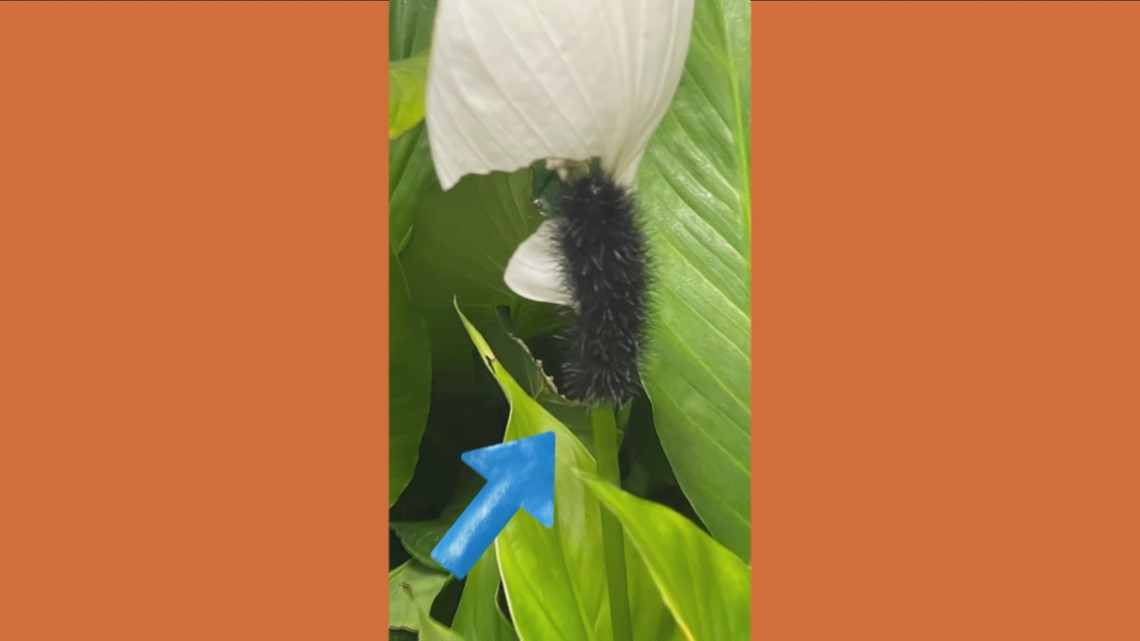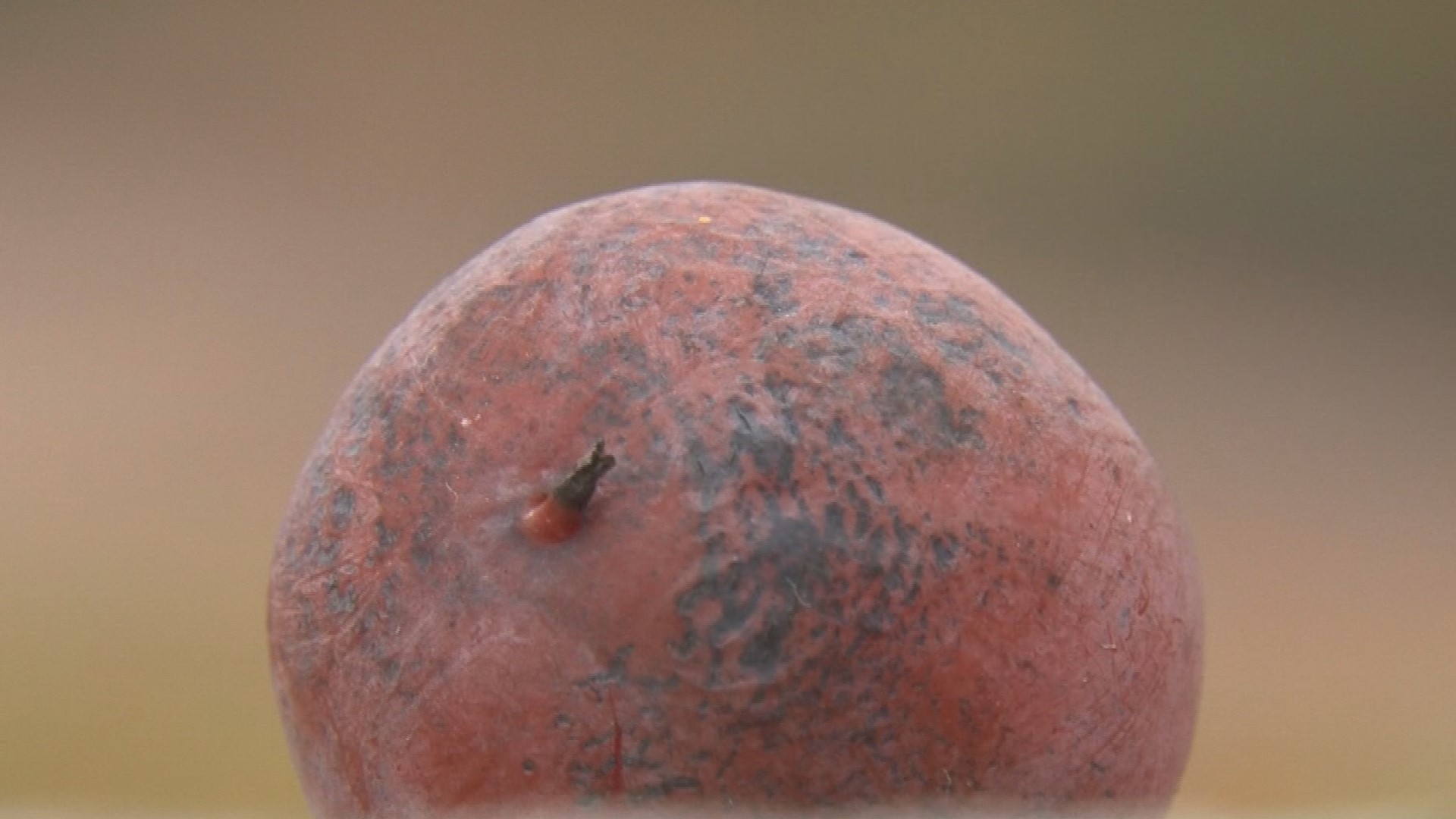GREENSBORO, N.C. — Two traditional ways of predicting winter weather both show we're in for a cold, snowy season.
Persimmons
Cold and bitter. That's how The Persimmon Lady on Facebook describes the upcoming winter in North Carolina based on her cutting open the fruits.
Every year farmers slice persimmons in half to look at the shape of the seed. Folklore has it, that if you cut open the seed and see the shape of a knife, you're in for a cold, cutting, and possibly icy winter. A spoon means a lot of snow to shovel. And a fork means a mild winter with a good harvest.
Every year on Facebook The Persimmon Lady continues the tradition by cutting open 10 fruits to find themes of the upcoming winter. This year it was mainly knives. She writes: "bitter ugly cold possibly even ice events ... It's definitely going to be cold cold cold."
But how accurate is this tradition? Back in 2015, 2 Wants To Know did a very unofficial test. Before the winter, we went to see the reading of the seeds. There were a lot of spoons for snow. And that year ended up being the 4th wettest winter on record for North Carolina.
Despite it working that year, researchers say you have a better chance of predicting the weather by flipping a coin.


Woolly worms
Over the weekend, Ben Briscoe brought in some of his favorite plants and found an almost all-black woolly worm hanging on them.
Legend says the blacker the creatures, the colder and harsher our winter will be. But if it's browner, we'll have a mild winter. But is that true?
THE SOURCES
- National Weather Service
- Frank Fowler - McNeely Pest Control biologist
THE ANSWER
No, Woolly Bear Caterpillars cannot predict the severity of the upcoming winter, but their coloring can indicate the harshness of the previous winter.
WHAT WE FOUND
Biologist Frank Fowler said, "There have been a lot of studies, a lot of folklore, about the Woolly Bear, and no studies have ever concluded they actually predict future weather events."
They can't tell the future, but they can remind us of the past.
"The coloration and the length of the bands do have a correlation to how severe the previous winter was. When they're born in the spring, they're all black, and the more warm growing season they have, the wider that round rust-colored band becomes in the middle," Fowler explained.
The National Weather Service notes the coloring indicates the age of the caterpillar. Each time it sheds its coat, it becomes redder. As for why the insects are so furry, Fowler said the coat protects them from freezing, down to -90 F.
Fowler said the Woolly Bear is a member of the Tiger Moth family, and although it's a pest, it isn't harmful. In fact, it might do you a favor and eat the weeds in your yard.
He said, "We need to enjoy them and celebrate them. Interestingly, they may be one of the only insects that has their own website!"

